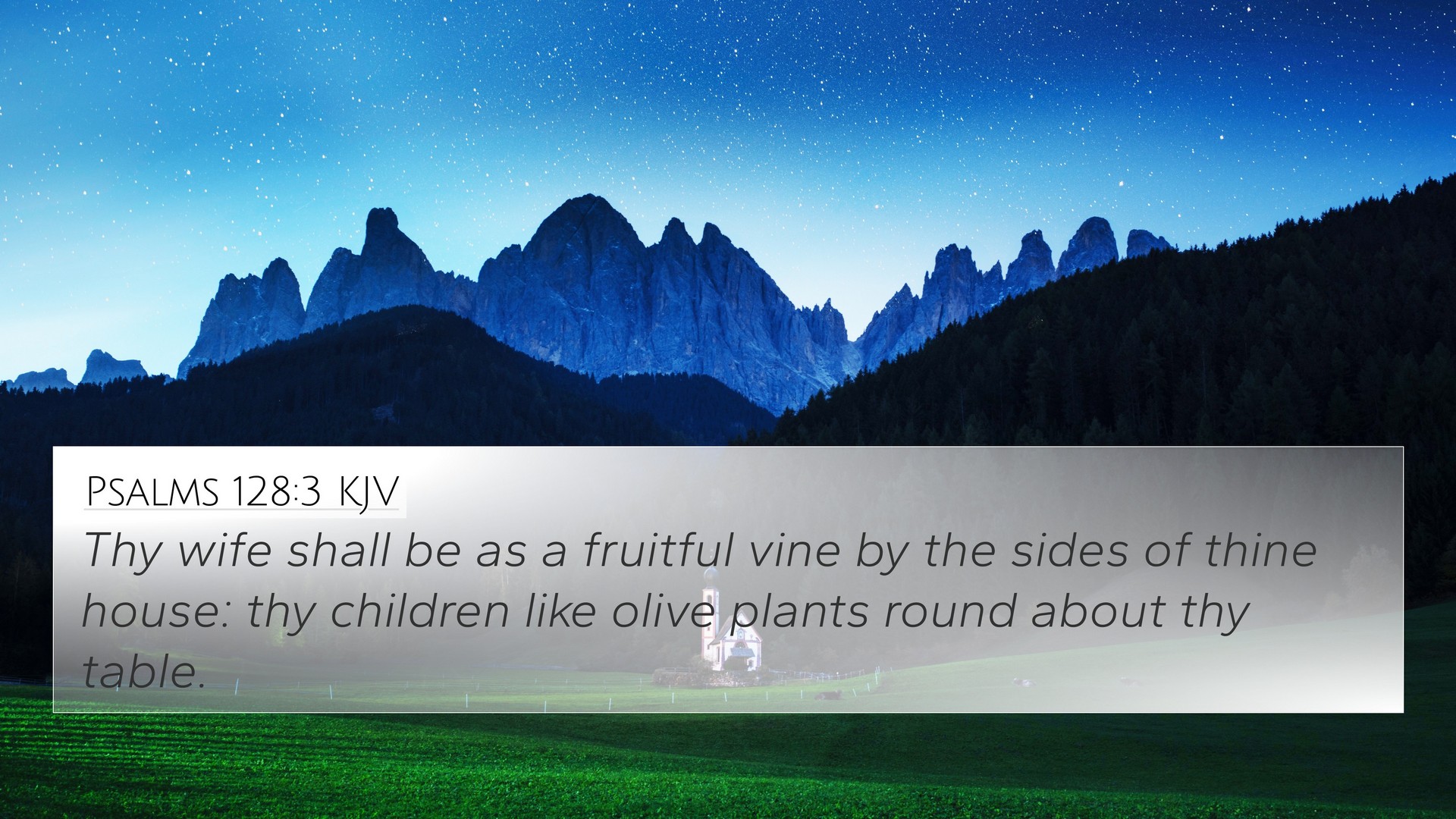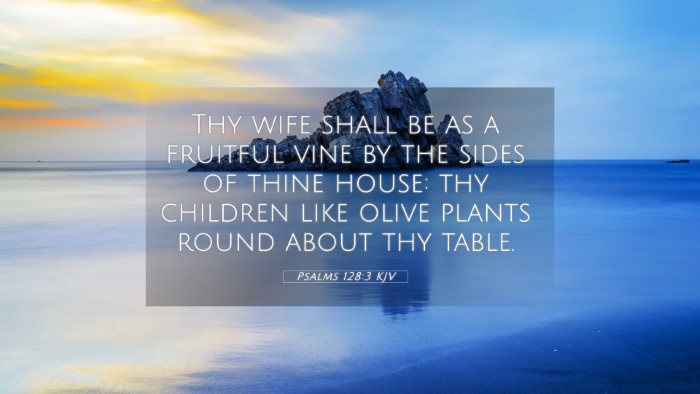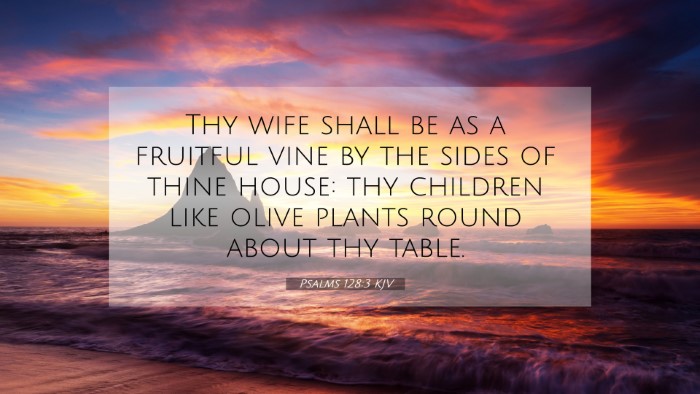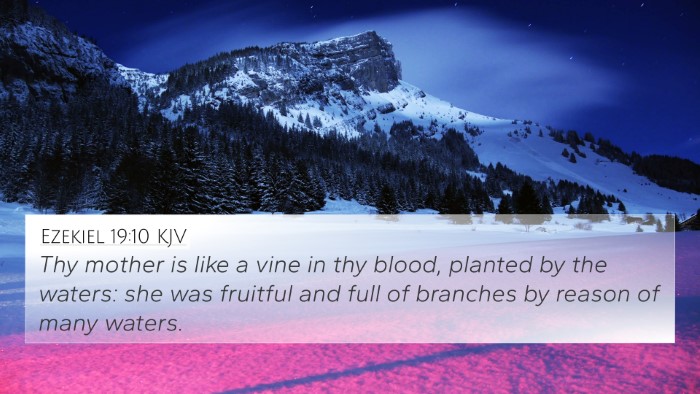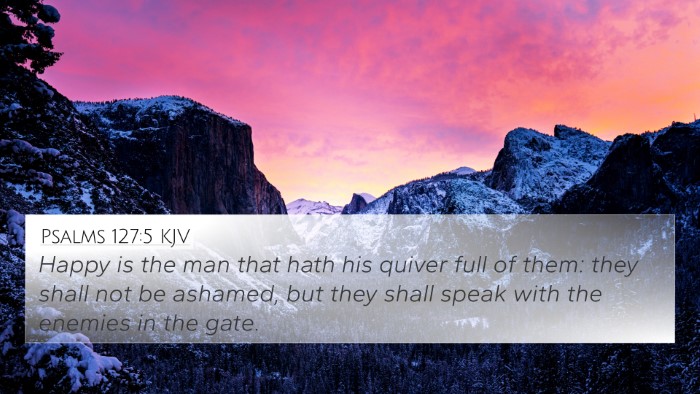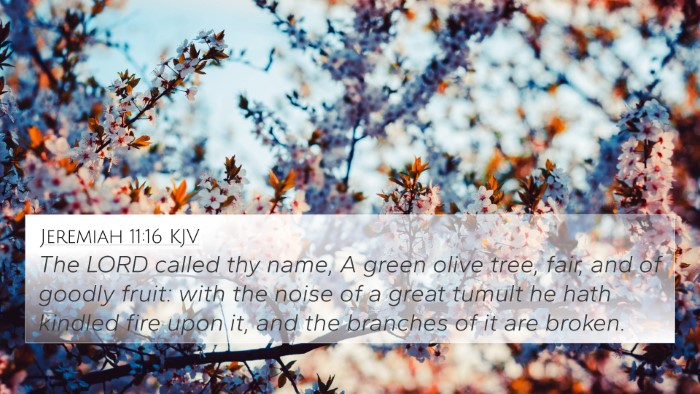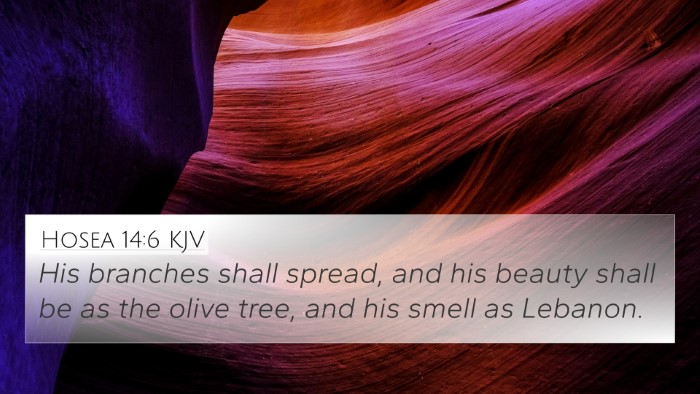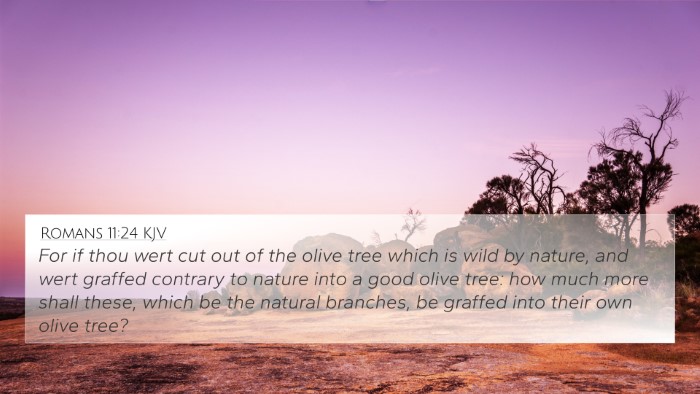Psalms 128:3 - Meaning and Interpretation
Psalms 128:3: "Your wife will be like a fruitful vine within your house; your children will be like olive shoots around your table."
Summary of Psalms 128:3
This verse encapsulates the blessings of family life and the prosperity that comes from a godly household. It paints a vivid picture of a thriving family, using agricultural imagery to articulate the significance of relationships within the home.
Commentary Insights
Insights from notable public domain commentaries provide a deeper understanding of this verse:
- Matthew Henry: Emphasizes the blessings of a fruitful marriage and the joy that children bring. He explains that the vine represents the wife’s nurturing qualities and the children are likened to olive shoots which promise vitality and longevity.
- Albert Barnes: Discusses the symbolism of the vine and olive, relating them to prosperity and blessing in the home. He highlights the idea that a faithful family fosters a strong community and reflects God’s design for family structure.
- Adam Clarke: Provides a detailed analysis of the agricultural metaphors, noting that these images convey the idea of growth, fertility, and the security found in trusting relationships. He connects this to the ecological benefits that these plants symbolize, such as sustenance and beauty.
Thematic Connections
Exploring the connections between Psalms 128:3 and other verses can provide a broader understanding of its themes. Here are some relevant cross-references:
- Genesis 1:28: "Be fruitful and multiply and fill the earth and subdue it." - Relating to the call for multiplication and fruitfulness in family life.
- Proverbs 17:6: "Grandchildren are the crown of the aged, and the glory of children is their fathers." - Echoes the joy and honor found in familial relationships.
- Psalm 127:3-5: "Children are a heritage from the Lord, offspring a reward from him." - Reinforces the idea of children as blessings.
- Deuteronomy 6:6-7: "These commandments that I give you today are to be on your hearts. Impress them on your children." - Calls for the imparting of faith to the next generation.
- Matthew 19:14: "Let the little children come to me and do not hinder them." - Jesus’ affirmation of the value of children.
- Ephesians 6:4: "Fathers, do not provoke your children to anger, but bring them up in the discipline and instruction of the Lord." - Highlights parental responsibilities toward children.
- 1 Timothy 3:4-5: "He must manage his own household well... For if someone does not know how to manage his own household, how will he care for God’s church?" - Stresses the importance of a well-managed family.
Bible Verse Parallels and Connections
This verse invites us to consider its implications for family, community, and spiritual life:
- Scriptural Cross-Referencing: It invites analysis alongside other Scriptures that speak to the value of family life, illustrating the connections in biblical texts.
- Thematic Bible Verse Connections: Consider how this ties into broader themes of community and divine blessing throughout Scripture.
Tools for Bible Cross-Referencing
Understanding the connections within the Bible enhances our study and appreciation of its teachings. Here are some tools and methods for effective Bible cross-referencing:
- Bible Concordance: A valuable resource for finding cross-references based on keywords.
- Cross-Reference Bible Study: Facilitates the examination of themes across different books and verses.
- Bible Reference Resources: Look for comprehensive materials that compile inter-Biblical dialogues and thematic connections.
User Intent and Related Queries
For users seeking to deepen their understanding of Psalms 128:3, consider the following queries:
- What verses are related to Psalms 128:3? Explore direct connections through thematic analysis.
- Find cross-references for Psalms 128:3: Utilize tools like concordances for in-depth study.
- How do Psalms 128:3 and Proverbs 17:6 connect? Examine the themes of familial honor and legacy.
Conclusion
Psalms 128:3 offers profound insights into the beauty and blessings of family life, using vivid agricultural metaphors to convey deeper spiritual truths. By exploring this verse alongside its cross-references, we gain a richer understanding of God's intentions for families and the enduring value of relationships grounded in faith.
